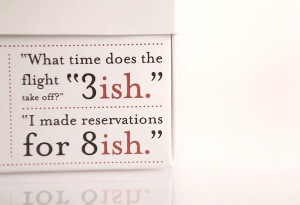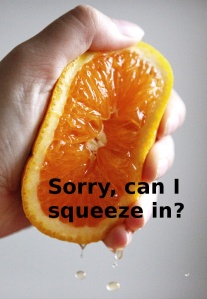 In today’s post I want to teach you how to switch from informal to formal English when writing. This should prove especially useful for those of you who are sitting the Cambridge English: Advanced (CAE) soon as you might be asked to write a formal letter or proposal in the exam.
In today’s post I want to teach you how to switch from informal to formal English when writing. This should prove especially useful for those of you who are sitting the Cambridge English: Advanced (CAE) soon as you might be asked to write a formal letter or proposal in the exam.
Vocabulary
Informal English Formal English
|
|
* To replace ‘if’ with ‘unless’, the clause with ‘unless’ needs to be negative if the ‘if-clause’ is positive and the other way around:
If he doesn’t pay today, I’ll go to the police >> Unless he pays today, I will go to the police.
**If you can, avoid using phrasal verbs in formal writing as they always sound rather informal.
Grammar structures
Informal Formal
|
|
Let’s focus on a language structure that might cause problems to students: the inversion.
As you see in sentence 2, with an inversion the subject (you) comes after the modal verb (should) and it is followed by a bare infinitive (need). Have a look at this other example:
If you want to get in touch, drop us an email (inf). >> Should you want to contact us, please send us an email (form).
Examples
Now have a look at these sentences and try to change them to make them sound more formal:
- Thanks for asking, I’d be very happy to give you more information about our project.
- I’m sorry for calling off our meeting at the very last minute.
- After our chat earlier on the phone, it would be great if you …
- If you don’t give me more details, I won’t be able to help you.
- I can’t wait to see you to talk more about this.
- The receptionist gave us another room.
- Just let us know if tomorrow is not a good time for you to come around.
- I’m sorry to tell you that your project won’t get any money this year.
- If you want to meet, I’m free tomorrow.
- I’m getting in touch with you because I’d like to get more info about your English course,
Now check your work! Here’s what I’ve come up with:
- Thank you for your enquiry, I would be delighted to provide you with further information regarding our project.
- Please accept my apologies for postponing our meeting at such short notice.
- Following our recent phone conversation, I would appreciate if you could…
- Unless you provide me with further information, I won’t be able to assist you.
- I am looking forward to meeting you to discuss this further.
- We were provided with different accommodation.
- Should tomorrow not be a convenient time for you to visit us, do not hesitate to let us know.
- I regret to inform you that your project will not receive any funding this year.
- Should you wish to arrange a meeting, I’m available tomorrow.
- I’m writing to you to enquire about your English course.
I hope you’ve learnt something new in this post and good luck if you’re preparing for CAE!
Talk soon 🙂
Deb



